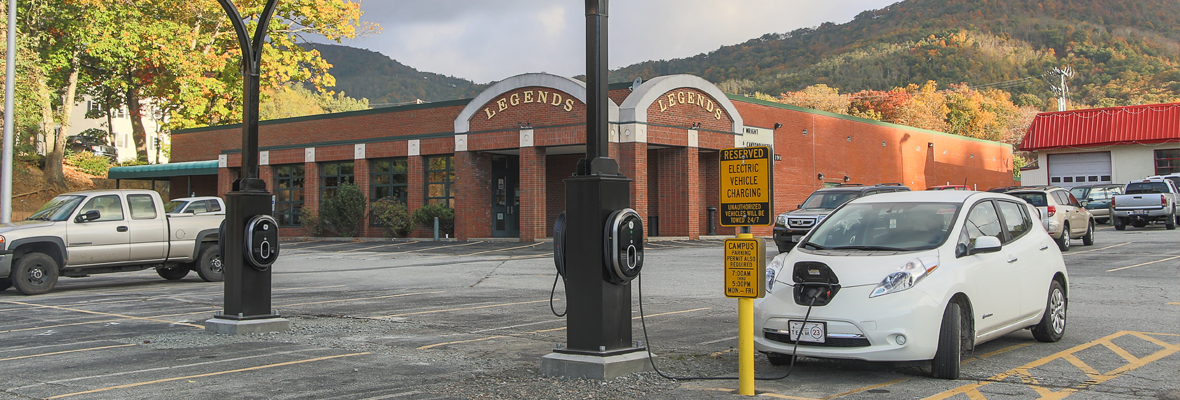Energy Summit 2016
2016 Summit Speakers
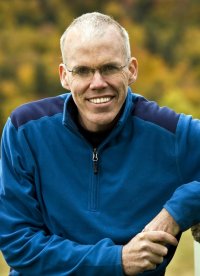
Bill McKibben, Keynote Speaker
Bill McKibben is an author and environmentalist who in 2014 was awarded the Right Livelihood Prize, sometimes called the 'alternative Nobel.' His 1989 book The End of Nature is regarded as the first book for a general audience about climate change, and has appeared in 24 languages; he's gone on to write a dozen more books. He is a founder of 350.org, the first planet-wide, grassroots climate change movement, which has organized twenty thousand rallies around the world in every country save North Korea, spearheaded the resistance to the Keystone Pipeline, and launched the fast-growing fossil fuel divestment movement.
The Schumann Distinguished Scholar in Environmental Studies at Middlebury College and a fellow of the American Academy of Arts and Sciences, he was the 2013 winner of the Gandhi Prize and the Thomas Merton Prize, and holds honorary degrees from 18 colleges and universities. Foreign Policy named him to their inaugural list of the world's 100 most important global thinkers, and the Boston Globe said he was "probably America's most important environmentalist.
A former staff writer for the New Yorker, he writes frequently for a wide variety of publications around the world, including the New York Review of Books,National Geographic, and Rolling Stone. He lives in the mountains above Lake Champlain with his wife, the writer Sue Halpern, where he spends as much time as possible outdoors . In 2014, biologists honored him by naming a new species of woodland gnat— Megophthalmidia mckibbeni--in his honor.
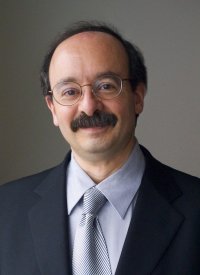
Amory B. Lovins
Amory B. Lovins, an American consultant experimental physicist and 1993 MacArthur Fellow, has been active at the nexus of energy, resources, economy, environment, development, and security in more than 50 countries for over 40 years, including 14 years based in England. He is widely considered among the world's leading authorities on energy—especially its efficient use and sustainable supply—and a fertile innovator in integrative design and in superefficient buildings, factories, and vehicles.
After two years at Harvard, Mr. Lovins transferred to Oxford, and two years later became a don at 21, receiving in consequence an Oxford ma by Special Resolution (1971) and, later, 12 honorary doctorates of various U.S. and U.K. universities. He has been Regents' Lecturer at the U. of California both in Energy and Resources and in Economics; Grauer Lecturer at the University of British Columbia; Luce Visiting Professor at Dartmouth; Distinguished Visiting Scholar at the University of Oklahoma; Distinguished Visiting Professor at the University of Colorado; Oikos Visiting Professor of Business, University of St. Gallen; an engineering visiting professor at Peking U.; 2007 MAP/Ming Professor at Stanford's School of Engineering; and 2011– Professor of Practice at the Naval Postgraduate School.
During 1979–2002, Mr. Lovins worked as a team with L. Hunter Lovins (his wife 1979–99). They shared a 1982 Mitchell Prize, a 1983 Right Livelihood Award (often called the "alternative Nobel Prize"), the 1999 Lindbergh Award, and Time's 2000 Heroes for the Planet Award. In 1989 he won the Onassis Foundation's first Delphi Prize for their "essential contribution towards finding alternative solutions to energy problems." That contribution included the "end-use / least-cost" redefinition of the energy problem (in Foreign Affairs in 1976)—asking what quantity, quality, scale, and source of energy will do each task in the cheapest way. This economically based approach first permitted successful foresight in the competitive energy-service marketplace. In 1993 he received the Nissan Prize for inventing superefficient ultralight-hybrid cars (www.hypercar.com), and in 1999, partly for that work, the World Technology Award (Environment). He also received the Heinz Award, the Happold Medal of the [UK] Construction Industry Council, the Benjamin Franklin Medal of the [UK] Royal Society of Arts (Life Fellow), and in 2007, the Blue Planet Prize, Volvo Prize, honorary membership of the American Institute of Architects, Foreign Membership of the Royal Swedish Academy of Engineering Sciences, Time International's Hero of the Environment award, Popular Mechanics' Breakthrough Leadership award, and honorary Senior Fellowship of the Design Futures Council. In 2008 he was named one of America's 24 Best Leaders by U.S. News & World Report and Harvard's Kennedy School, and received the first Aspen Institute / National Geographic Energy and Environment Award for Individual Thought Leadership. In 2009, he received the National Design Award and an Ashoka Fellowship, while Time named him among the world's 100 most influential people, and Foreign Policy, one of the 100 top global thinkers. In 2011, he was co-Runner-Up for the Zayed Future Energy Prize.
In 1982, the Lovinses cofounded Rocky Mountain Institute (www.rmi.org), an independent, entrepreneurial, nonprofit think-and-do tank. RMI's ~80 staff drive the efficient and restorative use of resources to help make the world thriving, verdant, and secure, for all, for ever. Ms. Lovins left RMI in 2002; Mr. Lovins is now its Chief Scientist and Chairman Emeritus. The Institute's ~$12-million annual revenue comes both from programmatic enterprise, chiefly private-sector consultancy, and from grants and donations. RMI's balance sheet comes largely from Mr. Lovins's having cofounded, led, spun off, and in 1999 sold (to the Financial Times group) E source, the premier source of information on advanced electric efficiency (www.esource.com).
Mr. Lovins has briefed 23 heads of state, given expert testimony in eight countries and 20+ states, delivered thousands of lectures, and published 31 books and over 480 papers, as well as poetry, landscape photography, music (he was a pianist and composer), and an electronics patent. In 1980–81 he served on the U.S. Department of Energy's senior advisory board, and in 1999–2001 and 2006–08, on Defense Science Board task forces on military energy strategy. He is a member of the Chief of Naval Operations' Advisory Board and the National Petroleum Cuncil. In 1984 he was elected a Fellow of the American Association for the Advancement of Science "for his book Soft Energy Paths and many other noteworthy contributions to energy policy," in 1988, of the World Academy of Arts and Sciences, and in 2001, of the World Business Academy. Dr. Alvin Weinberg, former Director of Oak Ridge National Laboratory, called him "surely the most articulate writer on energy in the whole world today"; Newsweek, "one of the Western world's most influential energy thinkers." Dr. John Ahearne, then Vice President of Resources for the Future, remarked that "Amory Lovins has done more to assemble and advance understanding of [energy] efficiency opportunities than any other single person." The Wall Street Journal's Centennial Issue named him among 39 people in the world most likely to change the course of business in the 1990s; Car called him the 22nd most powerful person in the global car industry; and The Economist wrote in 2008 that "history has proved him right."
An occasional advisor to the National Association of Regulatory Utility Commissioners and World Business Council for Sustainable Development, Mr. Lovins has addressed hundreds of fora sponsored by such groups as The Engineering Foundation, Association of Energy Engineers, ASHRAE, Society of Automotive Engineers, Royal Academy of Engineering, National Academy of Sciences, American Physical Society, International Association for Energy Economics, Montreux Energy Forum, Institution of Electrical Engineers, McKinsey and Company, Accenture, Merrill Lynch, JPMorgan, Allen & Co., News Corporation, Fortune, Forbes, Time, ULI, IDRC, CoreNet, AIA, API, AAPG, AGA, EEI, EPRI, CRIEPI, Hoover and Brookings Institutions, CSIS, Chatham House, Council on Foreign Relations, Pacific Council, Commonwealth Club, Keidanren, Conference Board, World Economic Forum, Tällberg Conference, TED, FiRE, eg, World Bank, GBN, Highlands Forum, NPS, NWC, NDU, DAU, Aspen Design Conference, Royal Society, and Royal Society of Arts. He collaborates on landscape photography and orangutan conservation with his wife, fine-art landscape photographer Judy Hill Lovins (www.judyhill.com).
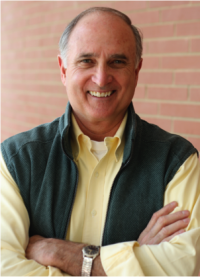
David W. Orr
David W. Orr is the Paul Sears Distinguished Professor of Environmental Studies and Politics and Senior Adviser to the President, Oberlin College. He is the author of seven books, including Down to the Wire: Confronting Climate Collapse (Oxford, 2009) and co-editor of three others. He has authored nearly 200 articles, reviews, book chapters, and professional publications. In the past twenty-five years he has served as a board member or adviser to eight foundations and on the Boards of many organizations including the Rocky Mountain Institute and the Aldo Leopold Foundation. Currently he is a Trustee of the Bioneers, Alliance for Sustainable Colorado, and the Worldwatch Institute. He has been awarded seven honorary degrees and a dozen other awards including a Lyndhurst Prize, a National Achievement Award from the National Wildlife Federation, and recently a "Visionary Leadership Award" from Second Nature. He has lectured at hundreds of colleges and universities throughout the U.S., Europe, and Asia. He headed the effort to design, fund, and build the Adam Joseph Lewis Center, which was named by an AIA panel in 2010 as "the most important green building of the past thirty years," and as "one of thirty milestone buildings of the twentieth century" by the U.S. Department of Energy. He is the executive director of the Oberlin project and a founding editor of the journal Solutions.
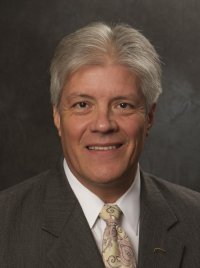
Karl R. Rábago
Karl R. Rábago is the Executive Director of the Pace Energy and Climate Center, at the Pace University School of Law in White Plains, New York. Pace is actively involved in every aspect of the New York REV—Reforming the Energy Vision—proceeding, in their own right and on behalf of the Clean Energy Organizations Coalition. Pace is also a public interest intervenor in rate cases and other key proceedings before the New York Public Service Commission.
Karl is also co-director of the Northeast Solar Energy Market Coalition (NESEMC), a US DOE SunShot Initiative Project that works to harmonize solar market policy in the 9-state northeast region, by creating a novel coalition of solar business associations in the region.
Karl has more than 25 years experience in energy and climate policy and markets. He is recognized as an innovator in electric utility regulatory issues relating to clean energy services and technologies. Karl serves as Chair of the Board of the Center for Resource Solutions, a San Francisco-based non-governmental organization that works to advance voluntary clean energy markets. He also sits on the Board of the Interstate Renewable Energy Council (IREC).
Karl also runs his own successful consulting practice, Rábago Energy LLC. His past positions include Commissioner, Texas Public Utility Commission; Deputy Assistant Secretary at the US Department of Energy; Vice President of Distributed Energy Services at Austin Energy, the municipal utility for the City of Austin, Texas; Director of Regulatory Affairs for the AES Corporation and AES Wind; Energy Program Manager for the Environmental Defense Fund, and Managing Director & Principal of the Rocky Mountain Institute.
A graduate of Texas A&M University with a Bachelor of Business Administration degree in Business Management, Karl is an attorney (University of Texas Law School, J.D. with Honors) with post-doctorate degrees in environmental (LL.M., Pace University School of Law) and military law (LL.M., US Army Judge Advocate General’s School). A veteran of more than 12 years in the US Army, he served as an Armored Cavalry officer and member of the Judge Advocate General’s Corps, and is Airborne and Ranger qualified.Karl has been married to Pamela Houston Rábago for more than 35 years, and they are the proud parents of three grown children, one amazing granddaughter--Avery Victoria Rábago, and a brand new grandson—Jonathan Richard Pollack.
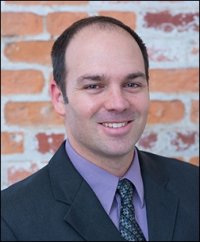
Ivan Urlaub
Ivan Urlaub is the Executive Director of the North Carolina Sustainable Energy Association (NCSEA). Under his leadership, NCSEA advances a clean energy path that results in net savings for all North Carolina ratepayers, works to maintain a financially stable and reliable utility, and strives to ensure a globally and regionally competitive energy industry and economy that benefits all of North Carolina. He has consistently employed a systemic and incremental strategic vision that intends to align the needs of consumers, the clean energy industry, utilities and government to achieve this.
Ivan’s sixteen years of experience includes supporting resolution of water resource disputes in the Mid-East and North Africa and ensuring adequate worst case scenario response plans are in place for all U.S. oil pipeline operators and military installations. Ivan serves on numerous advisory and working groups, such as the Charlotte Smart Cities Council, E4 Carolinas’ NC Electric Utility of the Future working group, and RMI’s national Electricity Innovations Laboratory (e-Lab) team, resolving challenges at the distributed edge of electricity. Ivan is currently the Technical Principal Investigator on a U.S. DOE grant to craft actionable economic development roadmaps for clean energy product and service R&D, manufacturing and demonstration in NC and the Southeast.
Ivan serves on the Three Zeros Advisory Board at UNC-Chapel Hill, he is the founder of the NC Clean Energy Business Alliance and has been recognized by the Charlotte Business Journal as a 2015 Energy Leader for North Carolina. He holds both a Master of Public Policy and a Master of Environmental Management from Duke University.
-200x301.jpg)
Earl F. Gohl
Earl F. Gohl was unanimously confirmed as federal co-chair of the Appalachian Regional Commission (ARC) by the U.S. Senate on March 10, 2010. He is the eleventh federal co-chair to be appointed since the Commission was established by an act of Congress in 1965.
Gohl came to ARC with 20 years of experience in Pennsylvania state and local government. From 1975 to 1995, he held positions including executive assistant to the mayor of Harrisburg; elected member of the Harrisburg City Council; deputy secretary of the Pennsylvania Department of Community Affairs; and director of the Pennsylvania governor's Washington office. As deputy secretary, Gohl awarded and administered $100 million annually in housing and community development programs benefiting communities within the Appalachian Region. He also managed several initiatives to strengthen the capacity of rural local governments to meet economic challenges.
From 1996 to 2001, Gohl served as a special assistant, and then as an associate assistant secretary, at the U.S. Department of Labor. There he was responsible for the development and implementation of legislative strategy in the areas of immigration policy, employment standards, affirmative action and federal workers' compensation programs, and international affairs, including child labor and core labor standards.
From 2001 to 2009, Gohl was the director of government relations/deputy director for the Puerto Rico Federal Affairs Administration, where he formulated legislative and executive branch initiatives related to taxes, economic security, health care, education, nutrition, environment, homeland security, labor, housing, and transportation.
In his Senate confirmation hearing, Gohl stated that his objective as ARC federal co-chair would be to ensure that each federal dollar expended by the Commission was "an investment in the economic future of Appalachian families that will generate a return for American taxpayers."
Gohl holds a bachelor of arts degree from Rider College (now Rider University) in New Jersey and a master of public administration degree from Pennsylvania State University.
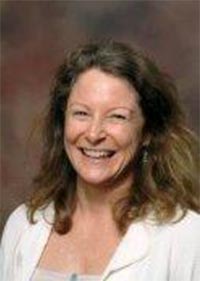
Marianne Adams
Marianne Adams holds an MA in Clinical Psychology from Appalachian State University and an MFA in Choreography and Performance from the University of North Carolina at Greensboro. She served as Chairperson of the Theatre and Dance department at Appalachian from 2007-2015. As a dance professor, she has coordinated the Dance Studies honors program, the dance program, co-directed of the Appalachian Dance Ensemble, and has received numerous grants in support of her choreographic work. Over the years, stemming from a love of the new and unknown, Marianne has created over twenty-five new courses in the curriculum at Appalachian.
Her collaborative research in mindfulness and bodywork has been published in the Journal of American College Health, the Journal of Dance and Somatic Practice, and the Journal of Bodywork and Movement Therapies. Her dance writings have been published in the Journal of Dance Education and the Journal of Poetry Therapy. Marianne was a founding member of the Appalachian Expressive Arts Collective and an Artist in Residence at the European Graduate School for Expressive Arts in Sass Fee, Switzerland in 2003 & 2008. She was one of the co-authors of the book, Expressive Arts Therapy: Creative Process in Art and Life, and a contributor for the Sourcebook in Expressive Arts Therapy. She has worked in therapeutic movement in several mental health settings and is on the Graduate faculty at Appalachian for Expressive Arts and Bodywork.
In 1996, Marianne began an intensive study of the Pilates method leading to certification by Romana Kryzanowska, in New York City. In 2005, she co-founded The Pilates Teacher Training Program, a yearlong unique, comprehensive, classical Pilates training that is sponsored by the Theatre and Dance Department and the Office of Conference and Camp Services at Appalachian. She is listed in the Classical Pilates Directory as a 2nd generation instructor. She is also certified in GYROKINESIS® and GYROTONIC®, systems of bodywork developed by Juliu Horvath.
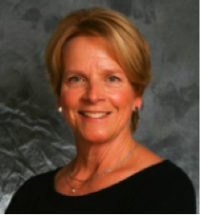
Marty Pickett
Marty Pickett is a Managing Director, Trustee, and General Counsel of Rocky Mountain Institute, an entrepreneurial nonprofit “think-and- do tank” that drives the efficient and restorative use of resources.
An 18-year veteran at RMI, Marty focuses on the Institute’s advancement in alliances, funding, and governance as well as general strategy and legal counsel. Marty grew up in North Carolina and received her undergraduate degree from Guilford College in Greensboro. She holds a Masters Degree in Community Development and Planning from the College of Architecture and Planning, University of Colorado, Denver, and a law degree, with an emphasis in environmental law, from the University of Denver.
Prior to joining RMI in 1998, Marty practiced land use planning and land use and real estate law in Denver and Aspen Colorado. She serves on the Advisory Board of the Center for the Environment at Catawba College in North Carolina, the international jury of the Dutch Postcode Lottery’s Green Challenge prize, and the People and Planet advisory board of IKEA.

Joel Olsen
Joel is the CEO of O2 emc, an Independent Power Producer that develops, owns and operates more than 100MW of Solar farms across the Southeast. The company has successfully raised more than $200 million in project financing. Prior to starting O2, he served as the director for Business Development and Government Relations at Sencera, a Charlotte thin film silicon solar module manufacturer. Fluent in Japanese and Norwegian, Joel brings an international perspective and global manufacturing relationships to O2 emc.
In addition to his work at O2 emc, Joel serves on the executive committee of the North Carolina Clean Energy Business Alliance, and on the Z Smith Reynolds Community Leadership Council. Joel is a recipient of the Charlotte Business Journal Energy Leadership Award, and the North Carolina Sustainable Energy Association Business Innovation Award.
Videos
Monday, July 18, 2016
Sue Edwards, Interim Vice Provost for Faculty Affairs, Appalachian
Welcome to Appalachian
Bob Powell, Professor, NC A&T
Greetings: 5‐Year Perspective
Will Johnson, Associate Vice President for Finanace and Capital Planning, UNC General Administration
General Administration Update; Sustainable Architecture Insights
Mike O'Connor, Physical Plant Director, Appalachian
Campus Initiative Highlights
David Goswick, CEO, Houze
The Future of Everything
Ged Moody, Special Assistant to the Chancellor for Sustainability, Appalachian
Why We Are Here
Cyndie Olsen, Student Summit Coordinator, Appalachian Class of 2019
The Future is Bright
Michael Chiseni, UNC Charlotte Masters Class of 2016
Student Highlight: The Hydroelectric Power Industry in Zambia and the Impacts of Climate Change
Sheri Everts, Chancellor, Appalachian
Welcome
Ged Moody, Special Assistant to the Chancellor for Sustainability, Appalachian
Wild Turkey Award Presentation
Amory Lovins, Chief Scientist, Rocky Mountain Institute
Acceptance: AES 5‐Year Reflection
Darrell Kruger, Provost, Appalachian
Keynote Introduction
Bill McKibben
Keynote Presentation
Moderated by Jeff Ramsdell, Professor and Director of the Appalachian Energy Center, Appalachian
Armchair Discussion: Amory Lovins & Bill McKibben
Tuesday, July 19, 2016
Chauncey Jenkins, Facility Operations Manager, Univ. of Maryland
Welcome / Reflection
Sue Edwards, Interim Vice Provost for Faculty Affairs, Appalachian
Speaker Introduction
Karl R. Rábago, Executive Director, Pace Energy & Climate Center, Elisabeth Haub School of Law
Customers as Drivers of Utility Transformation
Hanan "Alex" Hsain, NC State, BS, Class of 2018
Student Highlight: Energy Scavenging: Small Step, Big Impacts
Mike Green, Vice President, NTE Energy
Independent Power: An Alterna‐ tive to the Status Quo
Marianne Adams (Lead Dancer), Professor (App)
Somatic Sustainability Lives by Beauty
Len Hoey, Engineering Manager (NC Dept. of Environemental Quality) and Sandy Skolochenko, Recycling and Materials Management (NC Dept. of Environmental Quality)
University Energy & Recycling Data Update
Chris Halpin, President, Celtic Energy Brad Ives, Associate Vice Chancellor of Business Affairs, UNC Chapel Hill
The Race to Zero: UNC Chapel Hill’s "Three Zeros" Energy & Environmental Plan
Max Ciarlone, University of SC Class of 2018
Student Highlight: Green Office Certification: The Power of People
Jerry Marshall, Energy Manager, Appalachian
The Working Groups Concept
Jeff Ramsdell, Professor and Director of the Appalachian Energy Center, Appalachian Jim Dees, Sustainability Specialist, Appalachian
Poster Session Logistics / Overview
Tuesday, July 20, 2016
Steve Martin, Facilities Director, UNC Pembroke
Welcome / Reflection
David Orr, Paul Sears Distinguished Professor of Environmental Studies and Politics, Oberlin College
The Importance of Higher Education
Richard Fort, Principal, Clark Nexsen & Kurt A. Wargo, Regional Dean and Associate Professor of Pharmacy, Wingate University
There's Gold in Them Thar Partnerships
Jeremy Neiderjohn, Director of Marketing, Johnson Controls Curtiss Fox, Director of Operations, Clemson University's Energy Innovation Center
From Batteries to Buildings to Bottom Line: Introduction to Energy Storage
Student Highlight: Freshpire: Inspiring Fresh Ideas: The Impact of Food, Energy, and Our Planet
Mona Amin, ECU, BS, Class of 2018
Earl Gohl, Federal Co‐Chair, Appalachian Regional Commission
Empowering Entrepreneurs
Working Group Leaders, Facilitated by Sue Edwards
Working Group Updates
Utility Savings Initiative Achievement Awards - Presented by Len Hoey, Engineering Manager, NC Dept. of Environmental Quality
Energy Summit Grant Program - Presented by Eric Burgoyne, Project Engineer, DPR Construction / Len Hoey, Miriam Tripp, Special Projects Officer, UNC General Administration
Student Research - Darryll Kruger, Provost, App / Jeff Ramsdell, Professor and Director of the Appalachian Energy Center, App
Energy Summit IMPACT Award - Ged Moody
Awards Ceremony
Sheri Everts, Chancellor, Appalachian
Closing Comments
Sponsors
Sustaining Sponsors


Host Sponsors

Expert Sponsors




Event Sponsors


Student Sponsors


-230x70.jpg)

Zero Waste Sponsor

In-Kind Sponsors

Attendee Sponsors




Working Groups and Associated Peer Groups
The Appalachian Energy Summit has eight defined Working Groups. These groups are "anchored" by pre‐existing Peer Groups who already have relationships, regular meetings and accountability to one another.
- Academic Integration: Charged with elevating the discussion of how to integrate the messages and actions of energy savings and sustainability into our already rich curriculum and research efforts. Led by Dr. Jeff Ramsdell.
Click here for the 2016 AES agenda. - Click on the following links for the notes from the 2015 AES Meeting:
- Working Group Notes 07/14/2015
- Working Group Notes 07/15/2015
- Working Subgroup 2a Detailed Notes 07/14/2015
- Working Subgroup 2 Detailed Notes 07/15/2015
- Campus‐Based Energy Efficiency: Charged with identifying, pursuing, and achieving measurable energy reductions and cost savings across our diverse campus environments. Headed by Jerry Marshall.
Click here for the 2016 AES Agenda
Click here for notes from the 2016 Mid-Year Meeting. - Finance and Regulatory Opportunities + Energy Generation: Charged with strategically evaluating the emerging finance and regulatory issues and opportunities associated with achieving energy and cost savings. This group is also charged with identifying emerging models and methods of traditional and renewable energy generation. Co-chaired by Miriam Tripp and Jack Colby.
Click here for the 2016 AES agenda. - High‐Performance Campus Design: Charged with envisioning and executing plans for designing the campuses of the future that is both energy efficient and environmentally friendly while promoting and inspiring our core purpose, higher education. Headed by John Fields.
Click here for the 2016 AES agenda. - Transportation Opportunities: Charged with reducing the energy usage and environmental footprint in all university‐related travel including transportation, transit, and alternative fuel sources. Led by Dr. Jeremy Ferrell.
Click here for the 2016 AES agenda. - Student Leadership and Engagement: Charged with envisioning how they as students will be engaged in campus energy and sustainability efforts, and further empowered to lead, including the 2016 Poster Contest. Headed by Cynthia Olsen.
- Zero Waste/Waste Reduction Track: New in 2016! This year we are reaching out to colleges and universities to identify key stakeholders with zero waste/waste reduction and recycling responsibilities and focus. The goal is to facilitate collaboration and continue to develop networking opportunities among the experts in this area of sustainability. Led by Jennifer Maxwell.
Click here for the 2016 AES agenda.
If you are not pre‐selected into a working group based on your title or peer grouping we ask that you self‐select into the working group that best fits your interests, skills, and job responsibility. One change this year is that Appointed Sustainability Officers will be allowed to self-select their working group. For the Mid-Year Meeting, Student Leaders are also asked to self-select into one of the other five working groups.
View the Working Groups Summary from the 2015 AES Meeting here.
2016 Student Summit
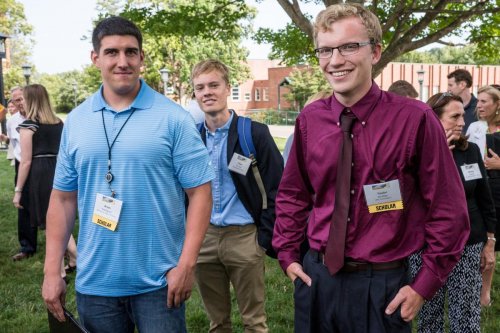
The Appalachian Energy Summit (AES) provides an enriching experience for student participants. From building peer relationships to speaking before an audience of 500, the AES has something to cultivate any student engaged in the energy field.
Student scholars will benefit from the advice and experience of industry partners during a career panel, and develop lasting connections in the networking reception that follows. The Student Summit provides the opportunity for students to drive change and encourage the implementation of clean energy initiatives on their respective campuses.
“I went into the summit with an open mind, an open heart, and a lot of ideas. I came out with a focused mind, an inspired heart, and a game plan to immediately act on.”
—Parker Grissom, Student of University of North Carolina Wilmington
Cynthia Olsen
2016 Student Summit Coordinator
[email protected]
(954) 732-9613
